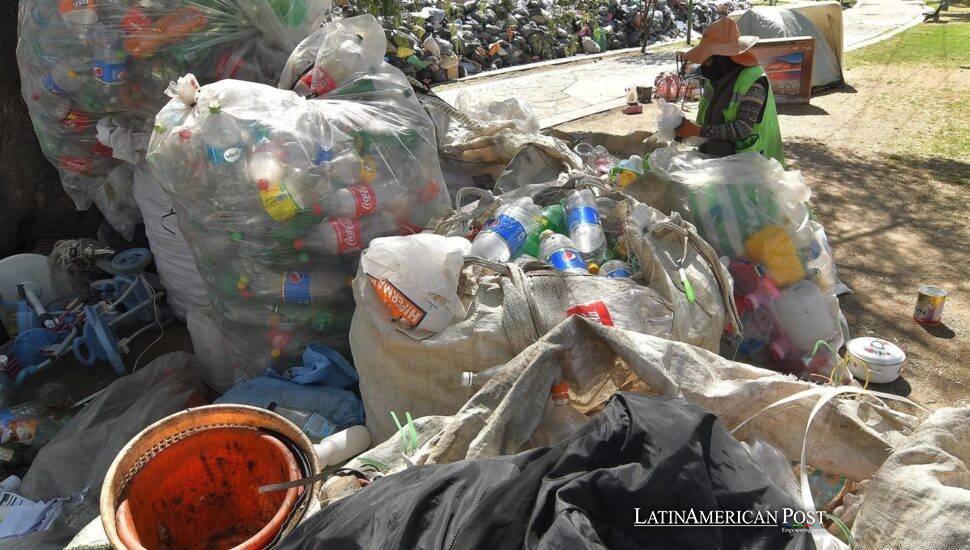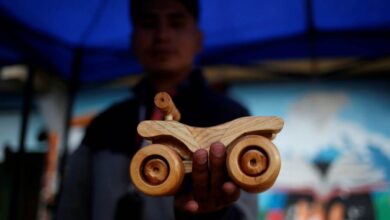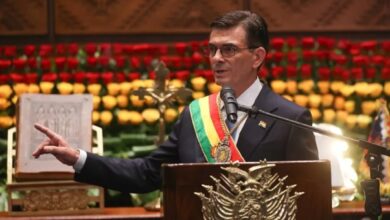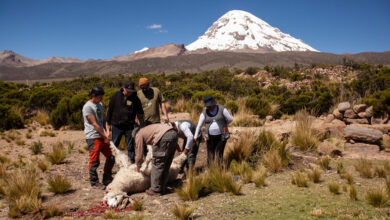Bolivian City Besieged by Garbage Blockade Sparks Criminal Turmoil

Garbage filled Cochabamba’s streets for almost two weeks. A neighborhood blockade at the landfill angered people. Because of that blockade, health hazards arose, political issues took a back seat, and some made claims of corruption. Locals anticipate bigger problems – and maybe unlawful actions.
Growing Heaps of Waste and Mounting Anger
Trash bags shaped into foul heaps, sit on Cochabamba streets, a lively Bolivian city stalled via thirteen days of demonstration. People step close to decaying waste at markets and near hospitals. A bad odor grew intense. During a regular walk near the avenues, sellers reported that the zone became so dangerous that they struggled to breathe – selling goods proved harder. One upset merchant-related accounts of clients who departed quickly. She felt powerless besides spoiling bits of food.
Bolivian towns often struggle with building issues. This issue stands apart because of its size. People protesting from the K’ara K’ara district, which contains the urban trash heap, stop garbage vans. They claim their once farmland is not Cochabamba’s site for waste. In essence, they hold the belief that officials have brushed aside environmental concerns for too long. Common individuals – facing monetary hardship – encounter a charge to endure smelly avenues and potential health issues.
Beyond mere annoyance, pressure grows. Some locals contemplate undertaking action. They plot to shift garbage toward the K’ara K’ara barrier – others speculate about political moves. Amid these accusations along with spreading gossip, the mayor states that his foes seek to hurt him. The situation displays a mixture of common irritation, claims of selection in agreements for the dump and claims that the mayor might put funds into how garbage shifts to workshop materials.
Hospitals at the Brink
The impact appears intensely within Cochabamba’s hospitals. Viedma complex includes four facilities – it amassed more than 24 tons of tainted medical debris and no place exists to discard it. For instance brilliant red bags, marked for biological threats, brim in storage areas by expectant mothers, new infants next to patients with impaired immunity. Doctors and nurses voice alarm at the rising contamination risks, warning that the extended blockade teeters on the edge of provoking a dangerous public health crisis.
The ramifications of letting infected syringes, bandages, and organic matter rot in a single storage room are enormous. One hospital official lamented how staff—already understaffed—fight to maintain sanitary conditions in hallways and wards. If disposal procedures remain blocked, it could spark an outbreak, or so local health experts fear. In a region where resources are already stretched, any surge in bacterial infections or exposure to contaminants might cripple daily care.
Medical leaders discuss potential legal actions, too. They call the blockade not merely a demonstration but a type of irresponsible risk that menaces a complete populace. As they state, the planners of the blockade employ civic hygiene as pressure, though they overlook the serious necessity of discarding risky things. City lawyers imply that trials can start – they will aim at the people who impede needed health aid, a case which points to bigger discord in Cochabamba.
Political Maneuvers and Accusations
As demonstrations increased, barricade participants claimed that the mayor – who sought the presidency – had given private waste deals to friends. A rumor suggests he gains personally from waste projects, which worsens the blockade. The mayor instead calls these claims “politically motivated,” implying that foes seek to damage his reputation. He says the blockade involves sabotage, which is not a real area of concern. Cochabamba’s uncertain politics complicate quick progress.
Doubt develops when accusations of corruption cover more than a single agreement. For those confronting authority, their steps achieve transparency. They desire that municipal officials reveal each element of a potential refuse program. Should wrongdoing appear, they claim that it warrants uncovering, despite a possible, short disruption for the whole town – but these tactics exhaust typical citizens since they handle decaying refuse besides have concern regarding disease from unclean roads.
This issue starts talk about national environment problems. Cities across the nation, including La Paz, Santa Cruz, and Potosí, encounter cyclical episodes of piled-up garbage whenever municipal negotiations crumble. Observers caution that, without systemic reforms—like modernized recycling, better infrastructure, and thorough environmental reviews—the cycle of blockades and piles of trash could worsen.
Crime Looming Beneath the Surface
The sense of tension radiating from Cochabamba’s garbage-strewn roads hints at broader anxieties. Unsuspecting pedestrians glance over their shoulders, aware that as sanitation decays, petty crime can flourish: thieves scavenge in heaps of waste, local news reports petty theft rising around blocked streets, and ominous stories surface of unscrupulous individuals capitalizing on the city’s distracted state.
Law enforcement officials convey worries that the barricade promotes illegal acts – such as drug trades concealed within waste heaps after nightfall and that petty crooks hide nearby places with unpleasant smells. Area enterprises consider a potential breakdown of civic harmony should anger worsen. Barricade organizers state their aim for the community besides ecological fairness, but some worry that local individuals will react strongly or that dishonest figures could incite chaos.
Because of this stressful situation, answers appear distant. Though leaders attempt to appease the K’ara K’ara protestors with dump proposals, no choice looks guaranteed. Residents create rival meetings, and they promise direct conflict by dumping much waste – hospital directors seek an important path for vehicles to move medical waste, and they call this emergency “a ticking time bomb.”
But the mayor states innocence – also, he names critics as makers of problems. Accounts circulate about hidden motives for the obstruction – political factions, builders who desire costly real estate or unknown organizations that secure money during disruption.
But even with the chaos and terrible images of decaying garbage, a chance of improvement appears. Some local activists propose long-term waste management strategies, including composting and recycling cooperatives to reduce reliance on a single landfill. Others suggest forging stable dialogue committees so city authorities and neighborhoods can negotiate environmental solutions without blocking roads. Should there be favorable developments, Cochabamba’s struggle could cause lasting advances in city life besides ecological protection.
Also Read: Brazil Spy Scandal: Itaipú Dam Tensions, Diplomatic Moves
The city stays covered in ruin – it awaits a solution. The final outcome of the blockade stays unclear – it could conclude peacefully or lead to conflict. Day after day, the trash piles expand, so this fuels unease that mixes crime, politics, and risks to health into one description of an unstable city’s existence. The protesters claim they endured significant ecological injustice – but the mayor censures hidden plots designed to undermine his power. In the gap between them, Cochabamba’s people watch with apprehension, hoping for a swift end to their city’s mounting crisis.





